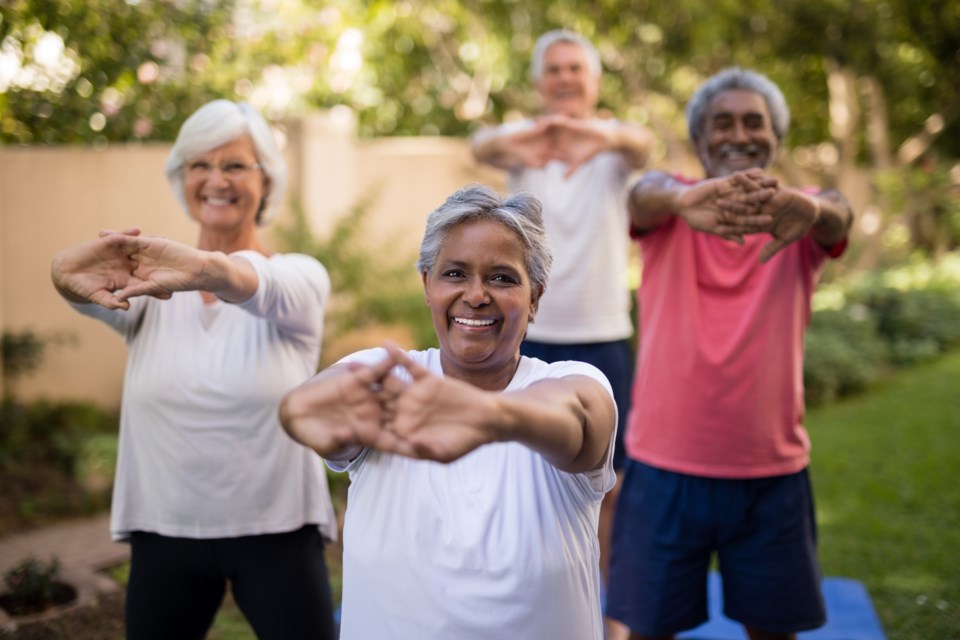Osteoarthritis (OA) is a disease that millions of Canadians suffer with, and often times are advised to medicate their pain and remain largely inactive until they receive surgery.
However, this is one of the many misconceptions surrounding arthritis, as there are options to ensure people can live with osteoarthritis with less pain, increased mobility and to stave off surgery for longer periods of time, said Robin Rumig, a kinesiologist at Lake Country Physiotherapy.
OA is most prevalent in the hip and knees and the replacement of those joints are the most common arthritic surgeries. Rumig explains that people tend to think that OA is a wear-and-tear disease but in reality, it’s a joint failure of the mechanism in the hip and knees, not a systemic disease.
“It’s no different than heart or lung failure,” said Rumig. “While it’s most prevalent with age, it’s not an age-related disease it’s just more noticeable as we age, but anybody can start to develop arthritis as early as 10 to 15 years after a knee or hip injury,” she said, adding that for example, someone that suffers a meniscus injury at 20 can begin to develop arthritic changes as early as 30.
Another misconception is that those with OA should limit activity so as to not worsen their arthritis. However, with arthritis, especially in the hip and knee, Rumig explains the cartilage needs exercising and the joints need movement because it’s the movement that helps keep the cartilage in your joint healthy.
“When you stop being active you’re not getting the same “dynamic loading” within the joint and that’s what’s important to keep the cartilage healthy, and when you stop moving that’s what causes the cartilage to break down, thin out, crack and eventually disappear and you can’t get it back."
In fact, this philosophy is so widely believed that it’s the leading cause of people over 65 to become more inactive. In actuality, Rumig said consistent movement is imperative and staying idle can cause your arthritis to become more advanced by the time you even see an orthopedic surgeon.
“It can take so long to get surgery that you need to have something to help other than medication, and really the foundation to your OA therapy should be exercise as number one to avoid surgery as long as possible,” she said.
Lake Country Physiotherapy offers the GLA:D program to educate and support those with OA
The GLA:D Program is an education and exercise-based program that is geared to those with mild to moderate OA, or as recommended by an orthopedic surgeon.
To offer GLA:D, a clinic must be approved and the therapist certified. Lake Country Physiotherapy is an approved site and Rumig is a certified GLA:D therapist. The program consists of two educational sessions, followed by 12 exercise sessions over the course of six weeks.
The exercises, Rumig said, are ones that anyone can do and she works closely with patients to ensure the exercises are tailored to them in order to give them the individualized result they need. Those with OA suffer from pain and mobility issues, where everyday activities like walking or going up and down stairs causes pain and discomfort, and these exercises are designed to help.
“They strengthen your muscles and make your joints more stable to either prolong the possibility of surgery or to get you stronger for when you have surgery because if you can be stronger before surgery, your recovery should be better after surgery."
For those who are not awaiting surgery, Rumig said people can experience increased ease of mobility, less pain or better pain management, more controlled muscle control and the ability to do more activities.
While the exercises are beneficial, Rumig said what appeals to her is the educational aspect of the program. She said once she explains exactly what arthritis is and how it can be managed with exercises and the proper techniques, it’s life-changing.
This is because patients become empowered with the knowledge to continue to help themselves, and sent home with a detailed, progressive plan that outlines effective ways to manage their OA going forward.
“They’re all basic exercises that everyone will be able to continue doing at home so you don’t have to go to the gym to continue doing exercises, and that’s really that whole goal for people, to know how to continue strengthening and stabilizing their joints after the program."
If you suffer from osteoarthritis and think the GLA:D Program may be helpful to you, call Lake Country Physiotherapy at 705-327-7876. You can also contact or e mail [email protected] them for more information.
